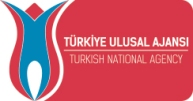Arran Stibbe, University of Gloucestershire
This website is for researchers, teachers, students, and school children who want to build a sense of connectedness with the natural world, both the slowly changing world of plants, animals and the physical environment, and the faster changing world of the weather, as they come together into one weather-world. It is an environmental education project which draws on ecolinguistics, ecocriticism, anthropology and embodied experience to explore new ways of bringing people into connection with the world that surrounds them. While the initial focus is on engaging with the immediate local environment for health, wellbeing and understanding of natural systems, the larger aim is to build from this embodied experience towards practical action for sustainability and social justice.
On this website you will find the main publication Living in the weather-world: reconnection as a path towards sustainability, which is a 62 page ‘real story’ that explores the weather-world from different angles: the advertisements of travel agents, nature writing, Japanese haiku and animation, philosophy, personal embodied experience and photography. The story is presented in its original English version by Arran Stibbe, in an Italian version co-authored by Jessica Iubini-Hampton, a Turkish translation by Gaye Teksoz, and a Slovenian translation by Janja Lužnik, and . It is intended for teachers, students and older school children, and can be used as teaching material or read just for interest. Please click ‘resources’ above to download these materials.
The project has been carried out as part of an Erasmus+ project, Me We Whole, led by Gaye Teksoz, Middle East Technical University (Turkey), and involving four countries: Turkey, Slovenia, Italy and the UK. The University of Gloucestershire (UK) team is led by Paul Vare, with Tim Morgan, Jessica Iubini-Hampton, Arran Stibbe, Gideon Capie and Ocean Sparks.
Please feel free to use, quote, and reproduce these materials in full or in part in whatever way that you want. The materials have been produced for public benefit, and the producers place no restriction on their use. However, there may be some third-party content in some of the materials, in which case copyright for those materials remains with the original producer.
…
The European Commission and Turkish National Agency support for the production of this publication does not constitute an endorsement of the contents which reflects the views only of the authors, and the Commission and Agency cannot be held responsible for any use which may be made of the information contained therein.

Turkish National Agency (www.ua.gov.tr)
